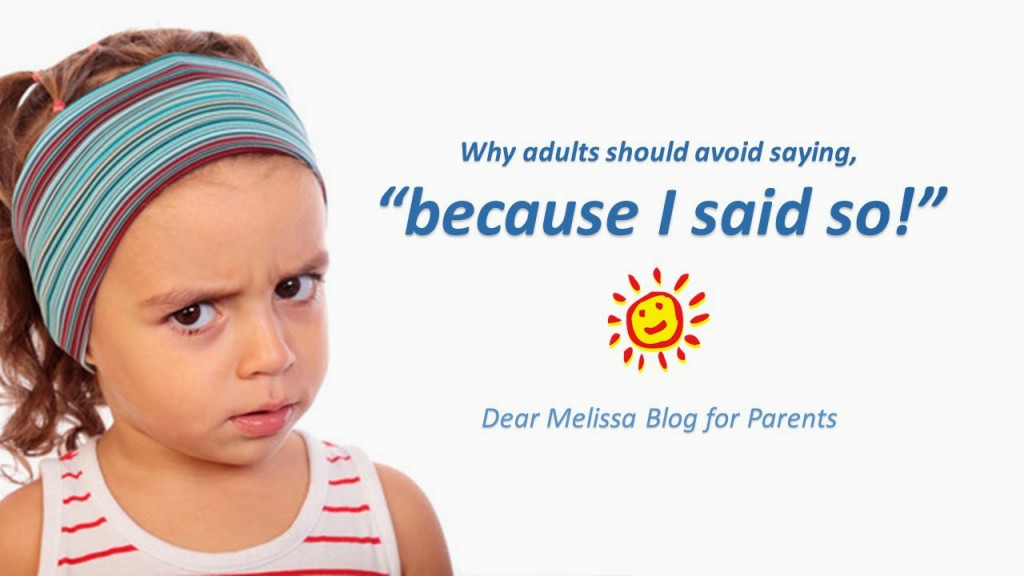 |
| credit: envato |
Dear Melissa,
When adults tell children to follow directions, “because I said so!” that should be enough of an explanation for any child.
The above statement actually comes from a discussion I had with a local child psychologist several months ago. If I thought saying, “because I said so!” provided children with opportunities to develop thoughtful self-discipline, then I would be all for it. However, it is difficult to make that argument. I strongly feel that every direction I give to a child is a little, two second teachable moment. It is my hope that if I provide enough of these tiny teachable moments, then I have given the child the tools he needs to make the best choices he can throughout his life.
My trial and error approach
I have gathered these ideas from lots of books and blogs then taken a trial and error approach over 7 years of being a mama and over a decade of being a pediatric occupational therapist. As a disclaimer, this blog is largely my opinion. This is simply me sharing my personal style of behavior modification and preferences in dealing with challenging behaviors.
Teaching children…not programming robots
We want our children to learn how to make good choices rather than blindly following directions. If we don’t teach a child the reasoning behind our directions, then how will they know how to make good choices when we are not there?
My formula for giving directions
Give a 5-7 word command followed by a 5-7 word explanation to describe the “cause and effect” nature of the situation. That’s it. My directions are not up for debate. Who has time for that? If the child starts to argue, I just repeat my directions.
Examples of cause and effect directions and natural consequences
Direction: “Wash your hands. I don’t want you to get sick.”
If a child refuses to wash his hands, then I won’t let him touch any of the fun equipment in the clinic to keep him/others safe from germs.
Direction: “Hold my hand in the parking lot, so you don’t get squished by a car.”
What if the child refuses to hold my hand in the parking lot? Then I will help him “practice” by pacing back in forth in the parking lot, holding my hand. My #1 job in life is to keep children safe.
Direction: “Wear your coat. You will feel cold outside without one.”
No coat? Then no playing outside. We can sit at the table and work inside, because again, it is my #1 job to keep kids safe.
Keep it simple
Children can’t process a 5 minute discussion over every command. Their language skills are simply not that advanced. After the first few words, your voice simply turns into “wah wah wah” like the teacher in the Peanuts cartoons.
Give “the look”
What about the child that keeps asking why? Well, you have given your direction. You have already answered “why”. This is when I throw in “the look” and simply say, “I have given you my explanation.”
Choices
Eons ago one our own TEAM OT’s, Cara Duran, and I were roommates during OT school. It is from her that I picked up a phrase that I use daily: “Life’s all about choices.” Sometimes we have two good choices like cake or ice cream. Sometimes we have two bad choices like tooth pain or a root canal. By teaching children about causes and effects, we empower them to make good choices even when confronted with challenging options.
I love, love, LOVE having fun and playing with kiddos and I hope they think of me as fun adult who loves them to pieces. However, it is not my job to be their best friend. It is my job to teach them how to make good choices. I will not always be there to look over their shoulder and prompt them. At some point, I need to be able to trust them to make their own choices.
Your thoughts? Please share!
share@childrenstherapyteam.com
Resources:
20 Things You Should Never Say To Your Child, Carla Field, WYFF News (2014)
The Explosive Child, Ross Greene (2014)
25 Ways to talk so children will listen, William Sears, www.askdrsears.com (2013)
